All Stories
-
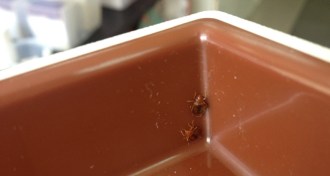 Animals
AnimalsTropical bedbugs outclimb common species
A study of bedbug traps and feet names finds that tropical bedbugs are much better at scaling slippery walls than common bedbugs.
-
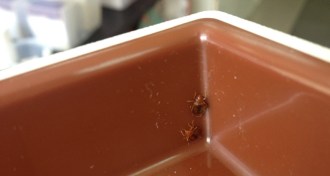 Animals
AnimalsTropical bedbugs outclimb common bedbugs
A study of bedbug traps and feet names finds that tropical bedbugs are much better at scaling slippery walls than common bedbugs.
-
 Health & Medicine
Health & MedicineSee how bacterial blood infections in young kids plummeted after vaccines
Rates of pneumococcal bacteremia in children plummeted by 95 percent after the introduction of vaccines against Streptococcus bacteria.
-
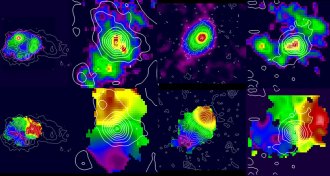 Astronomy
AstronomyDistant galaxies lack dark matter, study suggests
Slower-than-expected velocities of stars in distant galaxies, if confirmed, could reshape astronomers’ ideas of galaxy formation and evolution.
-
 Neuroscience
NeuroscienceMaking a mistake can put your brain on ‘pause’
When there’s not much time to recover, one error can lead to another.
-
 Science & Society
Science & SocietyOnline reviews can make over-the-counter drugs look way too effective
Online patient reviews put a far more misleading spin on medications than clinical trials do.
By Bruce Bower -
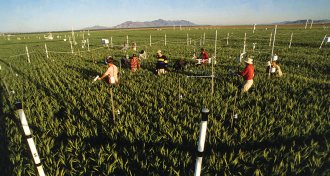 Climate
ClimateChanging climate could worsen foods’ nutrition
Climate change could aggravate hidden hunger by sapping micronutrients from soils and plants, reducing nutrition in wheat, rice and other crops.
By Susan Milius -
 Quantum Physics
Quantum PhysicsQuantum counterfeiters might succeed
Physicists demonstrate security issue with quantum cash.
-
 Astronomy
AstronomyIn new Cassini portraits, Saturn’s moon Pan looks like pasta
Photographs taken this week by NASA’s Cassini spacecraft provide a closer view of Saturn’s small moon Pan, which resembles ravioli.
-
 Astronomy
AstronomySaturn’s moon Pan looks like ravioli
Photographs taken this week by NASA’s Cassini spacecraft provide a closer view of Saturn’s small moon Pan, which resembles ravioli.
-
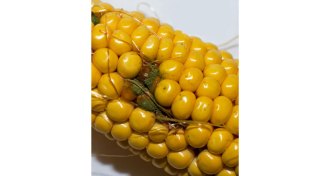 Genetics
GeneticsHow to grow toxin-free corn
Corn genetically altered to produce specialized molecules may prevent a fungus from tainting it with carcinogenic toxins.
-
 Physics
PhysicsA slowdown at the sun’s surface explained
Light escaping from the sun could slow the spinning of its surface layers.